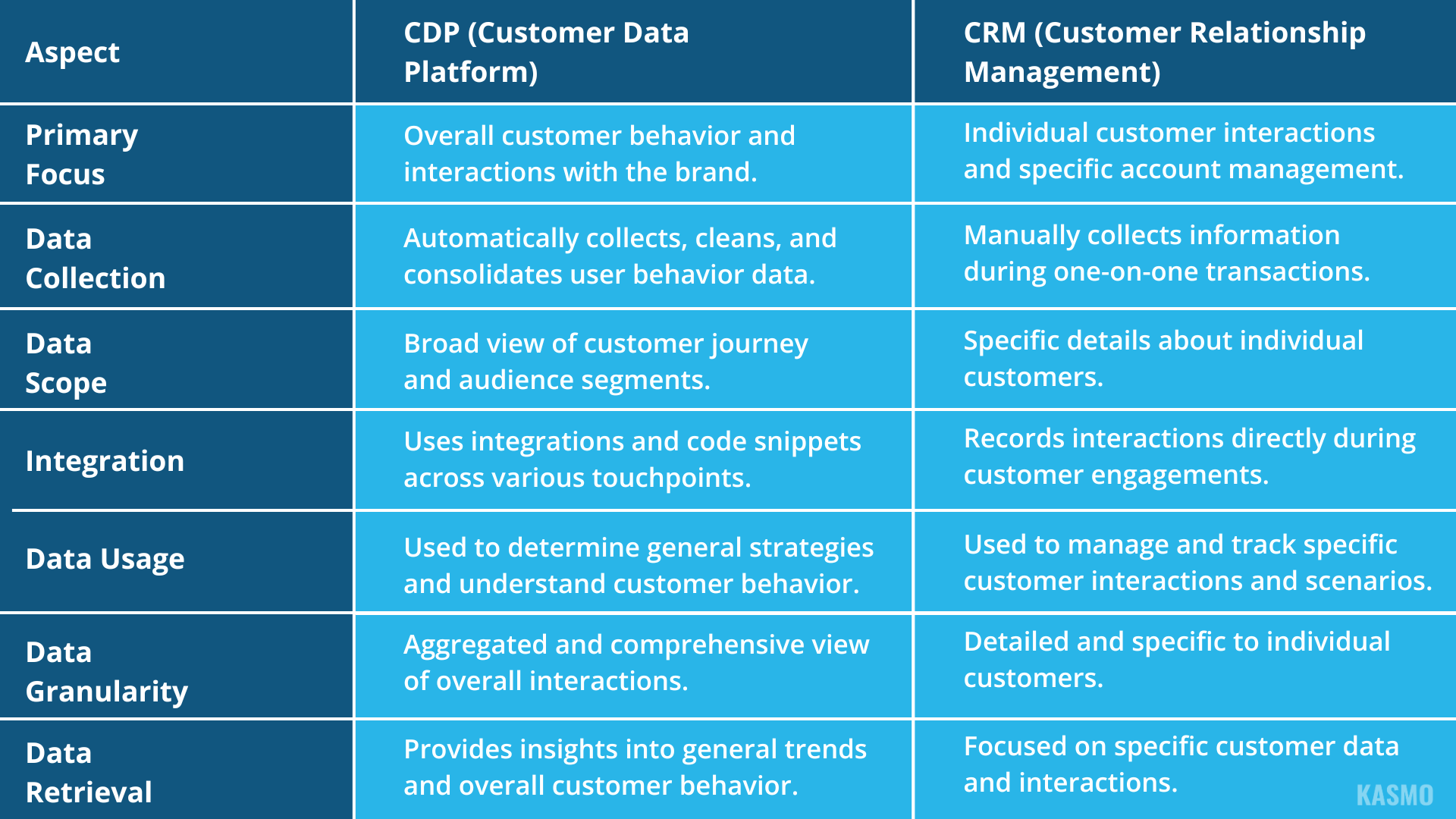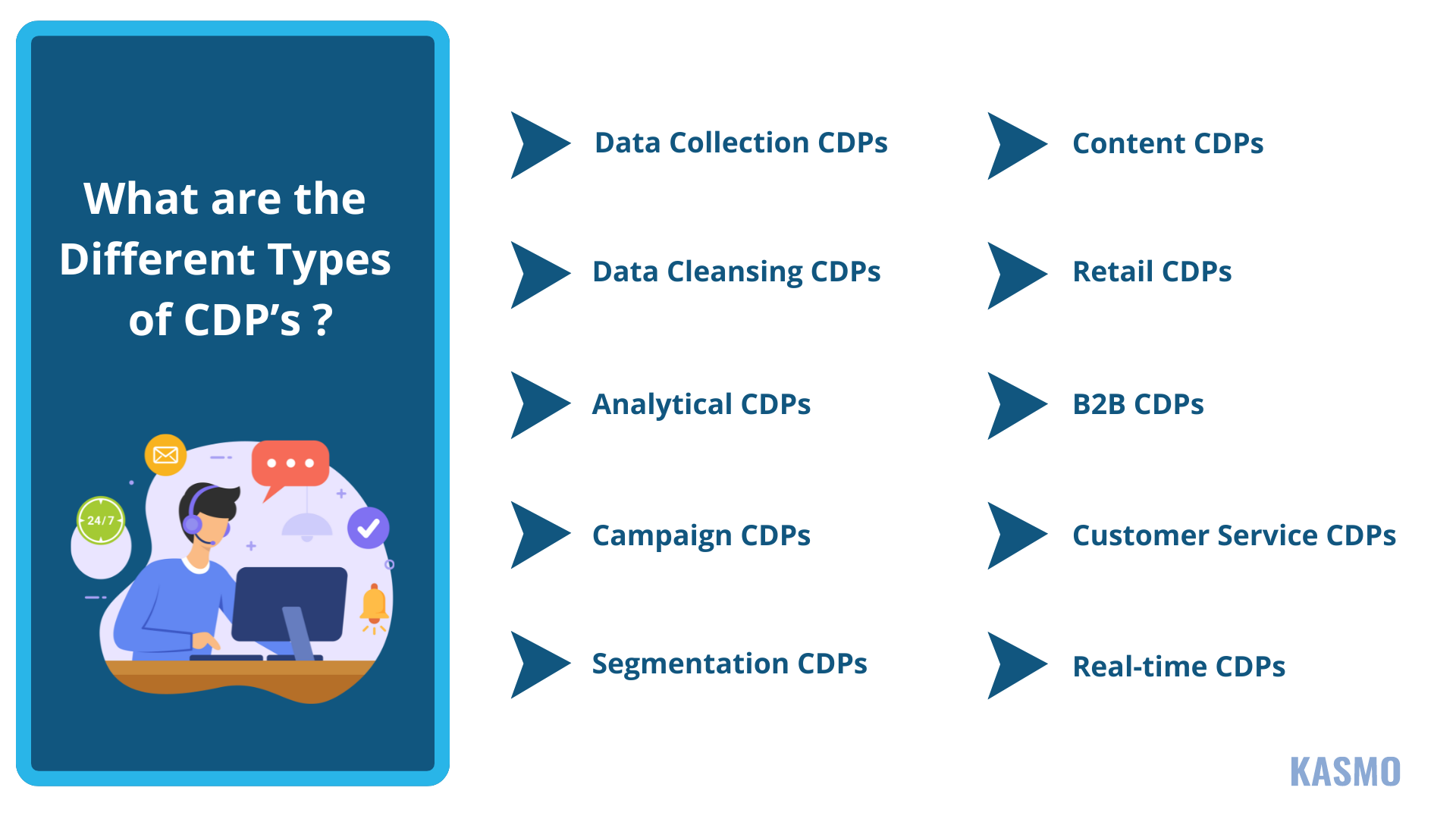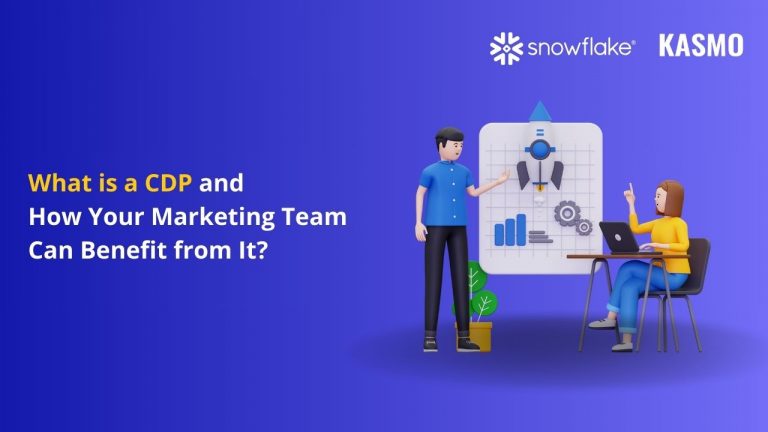What is a CDP?
Does your business struggle to manage vast amounts of customer data and tailor services to build customer loyalty and enhance experience? This problem can be solved easily by using a Customer Data Platform (CDP). But what is a CDP? CDP is an advanced customer data management software solution that is designed to help marketers ingest, integrate, and manage customer data from marketing and other channels. This application helps businesses tailor customer service by providing customer engagement activities and personalizing marketing campaigns.
Industries are focusing on investing in CDPs to retain customers and prevent customer churn. These businesses are opting for CDPs to strengthen their data and create a single view of their customers throughout the organization. This overview of customer data allows the sales and marketing teams to create a customer profile and provide the best experience. These CDPs also help marketing teams analyze and track customer interactions, making customization seamless.
CDP vs CRM

Types of Customer Data
There are primarily 4 main types of customer data that CDPs integrate to provide insights to marketing teams. Let’s have a look at these customer data types:
Identity Data
Identity data builds the foundation while CDPs are building your customer profiles. This data type helps businesses recognize their customers through names, demography, geographical location, and social profile. Identity data also provides CDPs with information on professional information to create a holistic customer experience.
Descriptive Data
By utilizing descriptive data CDPs can help marketing teams get a detailed insight on their customers. This descriptive data consists of career information such as income, lifestyle information – type of vehicle customers use, their family information, leisure activities they are interested in, and any particular interest they harbor. This information allows businesses to engage with customers and create a sense of ownership among customers.
Behavioral Data
Behavioral data includes the behavioral and spending data of customers who are engaging with the brand. Here are some more data that are included:
- Transactional data: This data when integrated in CDP will help businesses understand customers’ purchase history.
- Site traffic: This data gives insights into businesses’ number of people who are visiting their websites.
- Marketing email engagement: This data gives businesses insights on the click-through rate, open rate, and the number of subscribers they are gaining.
- Social media activity: By understanding customers’ social activities through social media, businesses can understand the type of products and services they might be interested in and create tailored marketing campaigns.
- Customer support interactions: Interactions between customers and sales professionals are recorded under behavioral data which integrated with CDP gives businesses insights on feedback and make decisions accordingly.
Qualitative Data
Qualitative data helps businesses analyze how well their customers are receiving their products and services. By understanding their opinions and attitudes towards their products and services through surveys and feedback forms, businesses can take data-driven decisions that can affect their new product releases.
What are the Different Types of CDPs?

What Does a CDP Do?
Understanding what a CDP is not enough. If you are planning to implement CDP to enhance your customer engagement and build loyalty, marketers need to understand the role of CDP:
Unify all First-party Customer Data
Marketing tools like email, analytics, CRM, ecommerce, and social media often work in isolation, making it challenging to get a holistic view and analyze data effectively. A Customer Data Platform (CDP) solves this by connecting all these tools, providing a unified source of truth for first-party customer data.
Efficient Customer Data Management
CDPs handle first-party data while ensuring compliance with consumer privacy and data rights by managing data flows between different marketing systems and overseeing consent. In the context of GDPR and data privacy, businesses must actively manage and document consent and data flows.
Easy Customer Data Activation
Once you have permission to collect first-party user data and have unified it into structured profiles, the CDPs enable you to take action on this data. They can create audience segments that can be used across various marketing platforms and channels.
A CDP improves the quality and impact of data-driven marketing campaigns and makes the process faster by providing deep insights, delivering relevant experiences at scale.
Uniting Unstructured and Structured Data
CDPs allows businesses to coalesce structured, unstructured and semi structured data, helping businesses to create a consolidated customer profile. A CDP integrates data from multiple sources like email, social media, loyalty programs and organizational ERP, CRM and DMP systems. CDPs uses this data through machine learning to segment customer profiles, perform predictive analysis and provide a data-driven customer journey.
Data Democratization
Customer Data Platforms (CDPs) democratize data, making it accessible across the entire organization, including marketing, sales, customer service, and support. This enables businesses to tailor their communications and build lasting relationships with customers, improving retention rates and reducing churn. Additionally, CDPs help lower customer acquisition costs by focusing on higher retention rates.
Personalized Marketing Campaigns
A Customer Data Platform (CDP) facilitates the integration of customer data across various systems for effective campaign activation. By providing actionable insights, CDPs enhance the customer experience throughout the omnichannel journey. They enable marketers to deliver advanced personalization, accurately segment target audiences, recommend relevant products and content, and execute successful retargeting strategies.
Key Benefits of a CDP
These are some of the important benefits of a CDP that marketers can leverage to transform their marketing campaigns:
- Customer Data Platforms (CDPs) boost return on investment (ROI) for marketers by consolidating individual profiles, linking collected attributes to identities, and enabling the sharing of these profiles for personalized email campaigns, digital ads, and other channels.
- CDPs eliminate data silos by unifying customer data, ensuring accuracy and accessibility across the organization. This unified data serves as a single source of truth for all departments.
- They gather data directly from customers, including website visitors, social media followers, and email recipients. This first-party data is collected through your tracking systems, ensuring its accuracy and relevance for building comprehensive customer profiles.
- They create detailed customer profiles that provide insights into individual customers as well as overall trends. These profiles help you understand customer behavior and preferences, enabling more targeted marketing efforts.
- By unifying all marketing efforts with accurate and consolidated data, CDPs ensure that all campaigns are based on the most current and comprehensive information. They also facilitate the collection and organization of new data for continuous improvement of marketing strategies.
How Can Marketing Teams Enhance Their CDPs With Snowflake?
Snowflake’s cross-cloud platform empowers marketers using CDPs to discover, share, collaborate, and quickly derive value from their data. Leveraging Snowflake as your source of truth, you can define or select validation for the consolidation of procedures for customers’ identification and matching.
This allows marketing teams to track customers and avoid any opportunity getting missed. Snowflake’s highly scalable data platform provides a variety of strong advantages for facilitating data-driven marketing through automating and simplifying the ingestion of large data sets.


